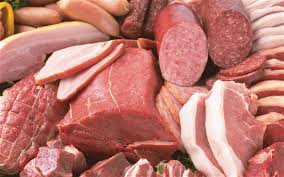Contract manufacturers count cost of horse meat saga
The horse meat scandal is set to cost European contract manufacturers tens of millions of euros as brand owners pass costs and losses up the supply chain.
Supermarkets will seek to recover emergency product withdrawal charges from brand owners who have supplied contaminated products, and also the cost of replacement stock and lost profits for items being off shelves, Richard Matthews, head of product liability at international law firm, Eversheds LLP, told FoodProductionDaily.com.
In a domino effect, the food manufacturer would pass these claims up the supply chain together with the costs which it has itself incurred, he said.
“In a contract manufacturing situation, a brand owner will seek to recover its losses from the co-packer. Notwithstanding that contract manufacturers may have bought ingredients in good faith and might not have been expected to test for all potential contaminants, they will still be in breach of contract.
“Those compensation claims will typically work their way up the supply chain, growing at each stage – with an increasing risk of businesses going bust if they cannot rely upon insurance.”
Amount at stake
He suggested that there were tens of millions of euros at stake.
“The level of claims in each situation will be largely driven by the volumes of units of the SKU withdrawn from supermarket shelves. Certain products withdrawn were big sellers, so the losses are substantial.”
Eversheds is acting for a number of food businesses across the food chain affected by the horse meat scandal, Matthews said.
Compensation claims
But many brand owners have already publically indicated that they plan to seek compensation from outsourced suppliers.
Julian Wild, corporate finance partner/food group director at law firm Rollits, added that while the risk of contract manufacturing was a loss of visibility on production, the system also had many positives.
He said: “I view contract packaging positively if you can get equality of relationship between the manufacturer and the brand. Outsourcing manufacturing means that a brand can invest all the capital in promotion and marketing rather than fixed assets.”
The contract between manufacturer and the brand owner client should pin down details such as quantities, delivery times and comeback if anything goes wrong, he said.
He added: “The issues are long term security and quality of manufacturing. A lot of the bigger players dual source so that they are not left in the lurch if a manufacturer goes bust for example.”
A Supply Chain report from financial services company Robobank from September 2012 estimates that the European contract manufacturing sector is worth 6 to 8bn euros, with the overall European food and beverages market worth around 500bn euros.

































